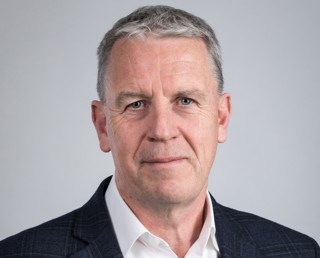It's hard to think of a greater period of change within the automotive industry. The vehicles we drive, how they are powered and how we own them are all in transition.
Automotive is a sector that still lags behind others in some areas. For example, smartphones and brands like Apple, when it comes to customer relationships.
Apple has created an experience for the consumer using its products and brand. From the initial purchase to the ownership lifecycle, it has made a community of customers and become integral to their way of life. An omnichannel, whole life hyper-personalised experience.
Agency model switch
One significant step towards this for dealers in the UK is the looming shift to an agency model on new cars. It will redefine the relationship between dealers and OEMs, re-determine who controls what and bring commercial benefits for both. Accenture identified a 4% reduction in costs for a large scale roll-out of this new approach.
Ford is joining a growing list of brands that have either confirmed the move to an agency model or are considering it, including Volkswagen, Audi, Honda, Seat, Skoda, BMW, Volvo and Polestar. Likewise, in Sweden, Austria, South Africa, and India.
Mercedes-Benz has already implemented the agency model and plans to start in Germany and the United Kingdom in 2023. It claims that more than half of its vehicles sold in Europe will be through the agency model by the end of that year.
More importantly, it can be a critical part of building a new relationship with the motorist. Automotive retail has already seen the rapid roll-out of online storefronts and new digital sales models.
According to Accenture research, more than 85% of dealers recognise they must adopt a sales structure that gives customers greater price transparency, a seamless customer journey, and quick delivery. The agency model can deliver this while maintaining a local infrastructure to support brand presence and service needs. It also retains local product experts that are well placed to meet the car owner's needs and provide an exceptional experience.
It is a watershed moment for the sector and one that demands a redefinition of the corporate culture in dealerships. Dealers must create closer relationships with consumers that last beyond the vehicle handover. And while data and technology will undoubtedly provide the tools to create longer relationships and, ultimately, greater lifetime value, it will be people who offer the service and provide the key.
Unlock people's potential
The key to unlocking the potential of teams within the new environment sits with giving people a greater voice in the business's operations. Shared goals, or a universally successful destination, give everyone a say and a stake in the business.
Talented people expect to influence more than just where or how they work. They want to actively contribute to their enterprise's mission, vision, innovation, and commercial success. Unlocking this potential in a business-like way needs to be the priority while ensuring that the newly empowered people understand their responsibilities and the business priorities. They will reciprocate with their everyday actions.
Unlocking the accumulated experience of existing staff, who have empathy with the needs of the local car buyer.
In an industry that continues to face a skills gap, another benefit of a more inclusive culture will be attracting and retaining talent. Better customer service and innovation will be others.
Dealers will be more aligned with the new 'trust economy' where they can build long term customer relationships by providing transparency and earning the same in response. Bringing together staff and the leadership team can align people and, in turn, their customers to the aims of their business. It will serve the short-term commercial aims and drive longer-term growth.
There is no doubt that competition for customers in the new normal will be fierce, and the imperative to make changes has never been greater. The good news is that dealers already have the answers they need within their teams.
Those closest to the processes and experiences that need to be improved are the greatest people to rethink your present business. The benefits from such an approach will be fundamental.
Author: Matt Thompson is a co-founder of Potentuel, a consultancy devoted to helping leaders unlock their people’s energy and potential to drive a better customer experience.


















Login to comment
Comments
No comments have been made yet.